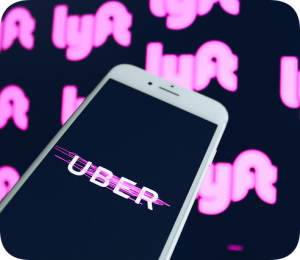 On Wednesday, California Governor Gavin Newsom signed a landmark labor law that guarantees wage and benefit protections for gig economy workers. The primary targets of this legislation are the state’s many Uber and Lyft drivers who are currently classified as independent contractors. When the new law comes into effect next year, the state will reclassify these contracted workers as regular employees entitled to a minimum wage, sick days, and other benefits.
On Wednesday, California Governor Gavin Newsom signed a landmark labor law that guarantees wage and benefit protections for gig economy workers. The primary targets of this legislation are the state’s many Uber and Lyft drivers who are currently classified as independent contractors. When the new law comes into effect next year, the state will reclassify these contracted workers as regular employees entitled to a minimum wage, sick days, and other benefits.
“Today the so-called gig companies present themselves as the innovative future of tomorrow, a future where companies don’t pay Social Security or Medicare,” said California State Senator Maria Elena Durazo. “Let’s be clear: there is nothing innovative about underpaying someone for their labor.” Although industries such as real estate and cosmetology received exemptions from the law, app-based tech firms like Uber, Lyft, and Doordash were not granted exemptions. As a result, some experts fear that the companies will not follow the law when it goes into effect. In fact, Uber said it would not reclassify its contracted workers as employees in 2020. A statement from the company’s chief legal counsel said that “drivers’ work is outside the usual course of Uber’s business, which is serving as a technology platform for several different types of digital marketplaces.”
This claim that drivers are not an essential part of Uber drew widespread criticism from both legislators and media. Still, no one expects the tech firms to back down from this fight anytime soon. The passage of California’s law could give momentum to similar legislation currently proposed in New York, which might then inspire other states to take action. Ride-hailing companies likely won’t be able to maintain their business models if they must reclassify their workers as employees. After all, Uber lost more than $5 billion in the last quarter alone, meaning that it probably can’t afford many more big expenses. If Uber and Lyft aren’t following the law by January 2020, though, they could face major legal repercussions from the state of California.
Questions:
- What is the intended purpose of California’s new labor law? Who is the law’s primary targets?
- Do you think Uber and Lyft should challenge California’s new labor law? Why or why not?
Sources: Kate Conger and Noam Scheiber, “California Bill Makes App-Based Companies Treat Workers as Employees,” The New York Times, September 11, 2019; Alison Durkee, “Uber Doesn’t Think Its Drivers Are a Core Part of Its Business,” Vanity Fair, September 12, 2019; Richard Gonzales, “California Governor Signs Law Protecting Gig Economy Workers,” NPR, September 18, 2019. Photo by Stock Catalog.
